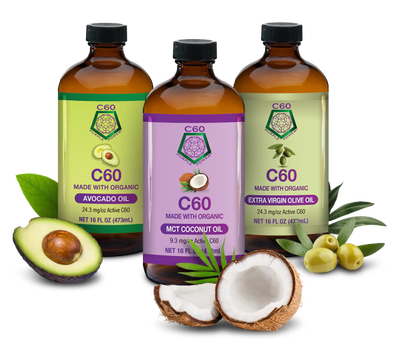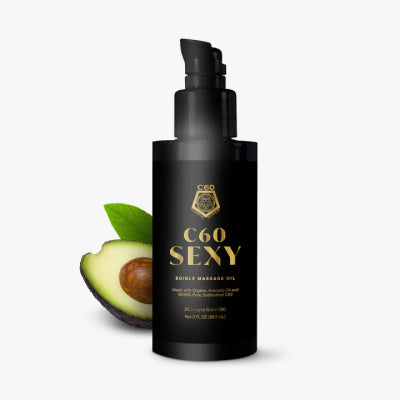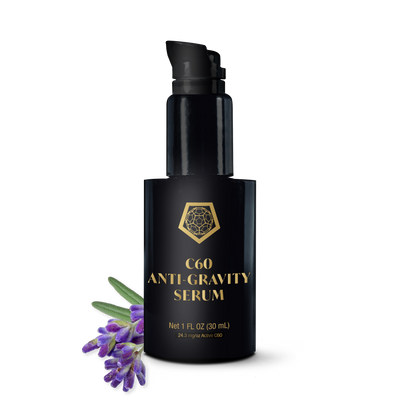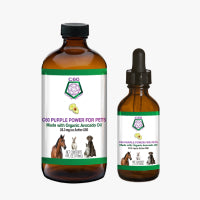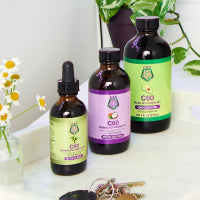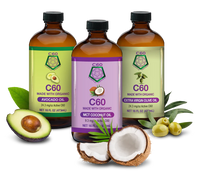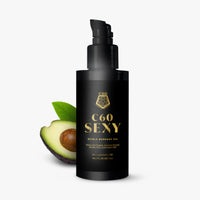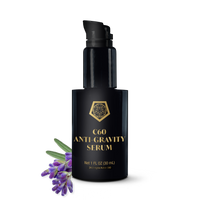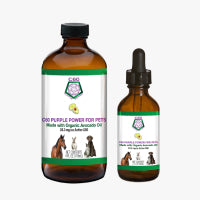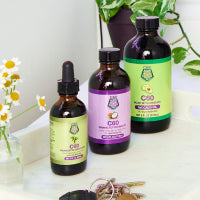Learn your best natural
sources of antioxidants
Antioxidants play a vital role in maintaining your overall health and
wellness. 1
Antioxidants are molecules that help protect cells from damage caused by free
radicals. Free radicals are unstable compounds that can cause oxidative stress, potentially causing cellular damage.
1
The great news is that these mighty molecules are readily available to you
naturally in fruits, vegetables, and in science-backed supplements. Examples of antioxidants include vitamin C,
Carbon 60 (C60), beta-carotene, lycopene, selenium, and lutein. 2, 3
At C60 Power, we’re dedicated to helping you take
back control of your health. We are passionate about educating you on how to get the most from your body.
Keep reading to learn all about antioxidants and how you can embrace the
power of these powerful and healthful molecules.
What are Antioxidants?
Antioxidants are naturally occurring or human-made molecules that work to
limit or slow cellular damage caused by free radicals. The vitamins and minerals in the foods you consume are
antioxidants and your body naturally creates antioxidants. 1
We like to think of antioxidants as your friends. These molecules have the
all-important job of defending against free radical damage. 1
To really understand why antioxidants matter, you need to know the facts on
free radicals and oxidative stress:
-
Free radicals are like little
troublemakers in your body - they're unstable molecules with unpaired electrons who try to steal electrons from
other molecules. 1, [4]
These free radicals
can come from normal processes inside your body, but also from environmental factors including cigarette smoke,
pollution, and radiation. 1, 4
When free radicals steal electrons, they may damage important parts of your cells
including DNA and proteins, potentially leading to health problems if there aren't enough antioxidants available
to neutralize them. 1, 2, 4
Antioxidants are your number one line of defense against free radicals, acting as
free radical scavengers. These smart molecules give free radicals an electron, without risk of becoming a free
radical. 1
-
Oxidative stress
Oxidative
stress occurs when there are too many pesky free radicals running around, and not enough antioxidants to keep
them in check. This imbalance between free radicals and antioxidants creates oxidative stress. 1, 5, 6
Left
unchecked, free radical damage may lead to long-term or chronic oxidative stress, causing damage to your DNA,
proteins, fatty tissues, and contribute to the development of negative health conditions. 1, 5, 6
Thanks to antioxidants, your body has
the potential to slow or limit oxidative stress, helping to protect you against cardiovascular, neurological,
respiratory, joint, kidney, eye, and organ health conditions. 1, 4, 5,
6
Antioxidant Facts You Need to Know
There is so much to tell you about antioxidants, that it can be easy to
overwhelm you with information. So here are the key facts about antioxidants we want you to know and remember: 1, 2, 4, 7
- Antioxidants are essential for the survival of humans, plants, and animals.
- There are two types of antioxidants: non-enzymatic and nutrient. Metabolic processes
in the human body naturally produce non-enzymatic antioxidants. Nutrient antioxidants must come from food or
supplements.
- Non-enzymatic antioxidants include: glutathione, lipoid acid, coenzyme Q10,
L-arginine, uric acid, melatonin, bilirubin, transferrin, and metal-chelating proteins.
- Nutrient antioxidants include: vitamins C and E, carotenoids including beta-carotene
and lycopene, selenium, manganese, zinc, flavonoids including quercetin, catechins, resveratrol, coumaric
acid, and anthocyanins, and omega-3 and -6 fatty acids.
- Fruits and vegetables are major sources of antioxidants.
- For many of us, coffee, is our single biggest source of antioxidants. This isn’t
necessarily a good thing! It suggests that many of us are not eating enough fruits and vegetables.
- Some antioxidants, including vitamin C are added to foods to act as a preservative to
extend the shelf life of natural and processed foods.
- The single-most powerful antioxidant ever discovered is C60, a molecule made of 60 tiny carbon
atoms.
Your Best Natural Sources of Antioxidants
Just as it’s important to eat a wide variety of foods, it’s equally important
to get a broad source of antioxidants. Each antioxidant has a different and key role in your body.
Our suggestion – start with your favorite natural antioxidant sources and then add two
more each week. Before you know it, you’ll be eating the recommended 30 different types of plant-based foods a
week – your body, mind, and antioxidant levels will thank you! 3, 8, 9, 10, 11, 12
-
Carotenoids (beta-carotene and lycopene): apricots, asparagus, beets, bell peppers,
broccoli, cantaloupe, carrots, leafy greens, kale, mangos, oranges, peaches, pink grapefruit, pumpkin,
spinach, sweet potato, tangerines, tomatoes, watermelon, and winter squash.
-
C60: available in supplement form as an oil or gummy.
-
Flavonoids (quercetin, catechins, resveratrol, coumaric acid, and
anthocyanins): apples,
berries, cocoa, grapes, peanuts, red and white wine, and some teas.
-
Manganese: black tea, black pepper, brown rice, chickpeas, clams, hazelnuts, kidney beans,
lentils, mussels, oysters, oatmeal, peanuts, pineapple, soybean, and spinach.
-
Omega-3 and -6 Fatty Acids: almonds, anchovies, Brussels sprouts, cashews,
chia seeds, corn oil, enriched eggs, mackerel, safflower oil, salmon, sardines, sesame seeds, soybeans, soy
oil, spinach, sunflower oil, walnuts, and whole grains.
-
Selenium: barley, beef, Brazil nuts, brown rice, fish, poultry, and shellfish.
-
Vitamin C: bell peppers, broccoli, Brussels sprouts, cantaloupe, cauliflower, citrus fruits,
honeydew melon, leafy greens, kiwi, snow peas, strawberries, sweet potatoes, and tomatoes.
-
Vitamin E: almonds, avocado, boiled spinach, leafy greens, peanuts, red peppers, sunflower
seeds, and Swiss chard.
-
Zinc: beef, cashews, chickpeas, lentils, oysters, pumpkin seeds, poultry, sesame seeds,
shrimp, and fortified cereals.
Embracing the Power of Antioxidants
Harnessing the power of antioxidants is one of the best things you can do to
limit free radical damage and oxidative stress. These lifestyle tips can help you embrace antioxidants to their
fullest capabilities. 7, 13, 14, 15, 16, 17
- Limit exposure to environmental and lifestyle sources of free radicals, including
cigarette smoke, pollution, UV ray exposure, toxins and chemicals, radiation, and radon.
- Limit your consumption of highly processed foods or foods high in sugar, artificial
ingredients, and refined carbohydrates. These foods have limited nutritional value and may deplete your
antioxidant levels. Additionally, diets high in added sugars and refined carbohydrates have been associated
with increased oxidative stress.
- Focus on eating the rainbow – the more diverse and colorful your diet, the better. As
you can see from the list of foods above, you need to consume a wide variety of foods to get all the
antioxidants your body needs to defend against free radicals. Try to add two new foods to your diet each
week.
- Get your blood pumping with some daily physical exercise. While exercise does
stimulate free radical production, this is not necessarily a bad thing.
In fact, this free radical production helps train your body to better manage and
respond to these free radicals, stimulating your body’s antioxidant defenses to build a higher tolerance to free radicals and
oxidative stress.
- Manage your stress levels, with diaphragmatic breathing, meditation, saying “no” more
often, daily exercise, and focusing on quiet time for yourself. Persistent and chronic stress triggers an
increase in free radical production. While your body responds by increasing its antioxidant production, your
body can only do this for so long.
Prolonged stress overwhelms your antioxidant
defenses, potentially contributing to an oxidative imbalance. This imbalance and oxidative stress may
contribute to the increased potential for stress-related health conditions.
The human body is fascinating, and the more each of us understands about how it works and
functions at its best – the healthier we can be.
There aren’t any magic overnight solutions to health and wellness, but a consistent focus
on healthy eating, smart supplementation, managing stress, and moving your body go a very long way in keeping
you feeling and looking your best.
We applaud and support you in your healthy living and wellness journey.
To stay up-to-date with the latest from us about health, wellness, C60, and
you, subscribe to our newsletter. Extra bonus – you
get 10% off when you subscribe!
‡ These statements have not been evaluated by the Food and Drug Administration. These
products are not intended to diagnose, treat, cure, mitigate, or prevent any disease. Individual results may
vary.
[1] Lobo V,
Patil A, Phatak A, Chandra N. “Free radicals, antioxidants and functional foods: Impact on human health.” Pharmacogn Rev. 2010 Jul;4(8):118-26. https://www.ncbi.nlm.nih.gov/pmc/articles/PMC3249911/
[2] Antioxidants: In Depth, National Center for
Complementary and Integrative Health (Accessed May 1, 2024) https://www.nccih.nih.gov/health/antioxidants-in-depth
[3] Meissner, Morgan. “Is Carbon 60 (C60) Good for You?”
Healthline.com. (Accessed May 1, 2024) https://www.healthline.com/health/carbon-60-health-effects
[4] Pham-Huy
LA, He H, Pham-Huy C. “Free radicals, antioxidants in disease and health.” Int J Biomed Sci. 2008 Jun;4(2):89-96. https://www.ncbi.nlm.nih.gov/pmc/articles/PMC3614697/
[5] Cleveland Clinic. “Oxidative Stress.” (Accessed May
1, 2024) https://my.clevelandclinic.org/health/articles/oxidative-stress
[6] Sharif-Rad, Mehdi et al. “Lifestyle, Oxidative
Stress, and Antioxidants: Back and Forth in the Pathophysiology of Chronic Diseases.” Frontier in Physiology. 2020 Jul;11. https://www.frontiersin.org/journals/physiology/articles/10.3389/fphys.2020.00694/full
[7] Arnarson, Alti. “Antioxidants Explained in Simple
Terms.” Healthline.com (Accessed May 1,
2024) https://www.healthline.com/nutrition/antioxidants-explained
[8] Harvard T.H. Chan School of Public Health.
“Antioxidants.” (Accessed May 1, 2024) https://www.hsph.harvard.edu/nutritionsource/antioxidants/
[9] Better Health Channel. “Antioxidants.” (Accessed May
1, 2024) https://www.betterhealth.vic.gov.au/health/healthyliving/antioxidants
[10] Harvard T.H. Chan School of Public Health.
“Manganese.” (Accessed May 1, 2024) https://www.hsph.harvard.edu/nutritionsource/manganese/
[11] Robertson, Ruairi. “Omega-3-6-9 Fatty Acids: A
Complete Overview.” Healthline.com (Accessed
May 1, 2024) https://www.healthline.com/nutrition/omega-3-6-9-overview
[12] Jones, Paul. “Why should you eat 30 plants a week?”
Zoe.com (Accessed May 2, 2024) https://zoe.com/learn/30-plants-per-week
[13] Jiang S,
Liu H, Li C. “Dietary Regulation of Oxidative Stress in Chronic Metabolic Diseases.” Foods. 2021 Aug 11;10(8):1854. https://www.ncbi.nlm.nih.gov/pmc/articles/PMC8391153/
[14] Simioni
C. et al. “Oxidative stress: role of physical exercise and antioxidant nutraceuticals in adulthood and aging.” Oncotarget. 2018 Mar 30;9(24):17181-17198. https://www.ncbi.nlm.nih.gov/pmc/articles/PMC5908316/
[15] Dalleck, Lance C. et al. “Free Radicals,
Antioxidants and Exercise: A New Perspective.” ACE. (Accessed May 2, 2024) https://www.acefitness.org/continuing-education/prosource/november-2015/5688/free-radicals-antioxidants-and-exercise-a-new-perspective/
[16] Poljsak
B. “Strategies for reducing or preventing the generation of oxidative stress.” Oxid Med Cell Longev.
2011;2011:194586. https://www.ncbi.nlm.nih.gov/pmc/articles/PMC3236599/
[17] Kim, Eunkyoung et al. “Association of acute
psychosocial stress with oxidative stress: Evidence from serum analysis.” Redox Biology. 2021 Nov 47. https://www.sciencedirect.com/science/article/pii/S2213231721002974
Ken Swartz is the founder and Chief Science Officer of C60 Power, a health and wellness
company committed to delivering the highest quality Carbon 60 products available. Ken earned a Master of Science
degree from the University of Colorado at Denver and a Bachelor of Science in Economics from Arizona State
University.

